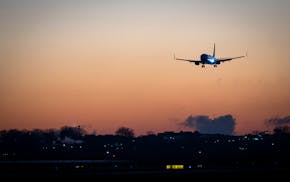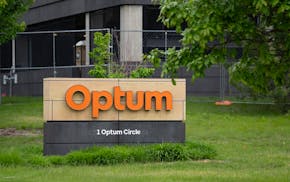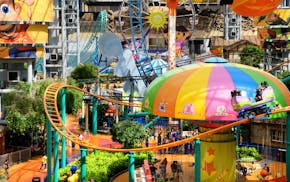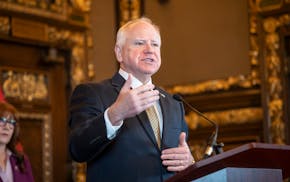A clean-energy startup developing a reactor that converts carbon dioxide into a charcoal-like substance secured $85,000 for winning the MN Cup, the nation's largest statewide innovation competition.
Carba's reactor removes carbon dioxide from the air and buries the solid carbon beneath the earth's surface to reverse the effects of coal mining, abandoned mines and quarries, and remediate landfills.
There's a correlation between climate disasters — like wildfires and rising sea levels — and climate warming too much carbon dioxide in the atmosphere causes, chief executive and co-founder Andrew Jones said. It's reaching the point where humans won't be able to reverse damage to the atmosphere if they don't address it in the coming years.
"Two-and-a-half years ago when I started this, I said, 'Why have we not moved further in carbon dioxide removal?'" he said, adding he first learned about it a decade ago when studying at UC Berkeley. "It was kind of, 'OK, the technology is ready, but are we going to do this?' Fast-forward to today, and very few credits have been delivered. I felt the need to try it myself. There wasn't enough being done."
Carba is selling forwards, or future sales, Jones said. Those will serve as carbon credits, something companies acquire to offset some of their own carbon dioxide emissions, co-founder Linda Hofflander said.
Carba's goal is to remove 1 billion tons of carbon dioxide from the air by 2035. It's ambitious, but on a global scale, pales in comparison to the 10 billion tons of carbon dioxide that needs removal per year by 2050, he said.
"We really need to get some of these milestones to be on track for that," Jones said. "If by 2036 we don't do anything, we're going to hit 2 degrees of warming, and that's going to hit some of these tipping points where it's really hard, if not impossible, to go backwards."
Carba will apply the prize money to research and development as well as hiring to enable the company to grow from a 1 carbon-ton per day facility to a 45-ton per day facility, Jones said. The company, which has closed on funding from angel investors and is raising seed capital from private investors, will move later this year from Litchfield to Burnsville, next to a landfill and compost facility.
A record 3,052 startups entered this year's MN Cup competition, which the Holmes Center for Entrepreneurship at the University of Minnesota's Carlson School of Management runs. The grand finale Monday was part of the ongoing Twin Cities Startup Week.
Early stage companies received a combined $400,000 in prize money through the showcase. Participants compete within the following categories: education, food and beverage, life sciences, energy/clean tech, impact venture, youth, student and high tech. Each division winner nabs $25,000 and automatically becomes a finalist for the grand prize.
In addition to the $50,000 grand prize, Carba, founded in 2021, won the energy/clean tech division and an additional $10,000 from the Minnesota Pollution Control Agency for the Green Chemistry prize, which goes to the company developing the most sustainable tech.
REMastered Sleep, a Twin Cities company that developed a drinking nozzle that can help relieve sleep apnea, won the general category and $15,000 as the runner-up to Carba.
Here are the other division winners:
Education and Training
Radar Talent Solutions, developing hiring system to support staff shortages in schools.
Food/Ag/Beverage
Quebracho Empanadas, a St. Paul company selling frozen empanadas, which Cub Foods most recently began selling.
High Tech
Raise a Hood, uses artificial intelligence and telemechanics to diagnose car problems.
Impact Ventures
XanthosHealth, looks to connect those diagnosed with cancer to community-based organizations through a referral system.
LifeScience/Health IT
Glimpse Diagnostics, developer of a device and software to diagnose ear infections in children. It also won Carlson Family Foundation $25,000 prize for the top female-led startup.
Student
Nivoso, creators of an autonomous robot that clears snow from sidewalks and driveways.
Youth
SafeSphere, a mental wellness app for adolescents that includes a journaling function, calming/stimulating activities/games and content about mental health/substance abuse. It also won the Southern MN Initiative Foundation prize of $5,000.

Delta hiked fares for solo travelers, until Twin Cities travel experts caught the change

In first speech back, UnitedHealth's new CEO pledges to review hot-button issues

A child had measles at Mall of America, concerning state health officials who don't know source

Ramstad: Gov. Walz, things are not getting done in Minnesota

